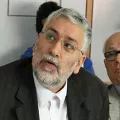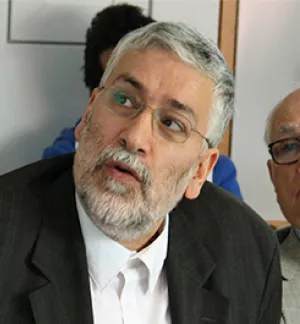Excerpt from "Iran's Nuclear File: Recommendations for the Future":
"There have been several recent events, both domestic and international, that are likely to have an impact on the shape of a future nuclear program in Iran. First, on March 12, 2009, the five permanent members of the UN Security Council (Russia, China, France, the United Kingdom, and the United States) along with Germany (the P5+1) published a joint statement on Iran's nuclear file, reafirming their unity of purpose and strong support for the International Atomic Energy Agency's (IAEA) essential role in establishing confidence in the exclusively peaceful nature of Iran's nuclear program.1 The P5+1 claimed they remain firmly committed to a comprehensive diplomatic solution, including through direct dialogue, and urged Iran to take this opportunity to engage with them.2
Second, Iran's presidential election took place on June 12, 2009, and attracted considerable controversy. The incumbent, Mahmoud Ahmadinejad, was officially declared the winner, but the opposition candidates, Mir Hossein Mousavi, Mohsen Rezaee, and Mehdi Karroubi, at first refused to accept the results. Akbar Hashemi Rafsanjani, a veteran of the Islamic Revolution and head of the powerful Assembly of Experts, did not send his congratulations to Ahmadinejad. Widespread demonstrations occurred in Iran after the election. Few observers expressed the view that, because Iran's foreign policy is connected to Supreme Leader Ayatollah Ali Khamenei, there would be no change in Iran's nuclear policies and activities, regardless of the president. Nevertheless, it seems the situation for Iran's policies has changed after the election because of new internal and external pressures.
Third, on July 11, 2009, Iran's Foreign Minister, Manouchehr Mottaki, said Iran is preparing a new package of political, security, and international issues to be put to the West. And on July 17, 2009, President Ahmadinejad named Iran's former envoy to the IAEA, Ali Akbar Salehi, the new vice president and head of the Atomic Energy Organization of Iran (AEOI).3 Salehi replaces Gholam Reza Aqazadeh, who resigned after holding the post for 12 years. Salehi served as Iran's ambassador to the IAEA from 1997 to 2005.
These recent developments call for rethinking the direction for Iran's nuclear activities. The Iranian election has made the job ahead much harder, but the determination to find ways to build trust and to create a strong diplomatic process has never been greater...."
Continue reading> (free registration required)
1 http://www.iaea.org/Publications/Documents/Infcircs/2009/infcirc749.pdf.
2 Ibid.
3 http://english.farsnews.net/newstext.php?nn=8804260714.
This article was originally published by the quarterly journal Dædalus. Read the entire issue here.
Maleki, Abbas. “Iran's Nuclear File: Recommendations for the Future.” Daedalus, Winter 2010





